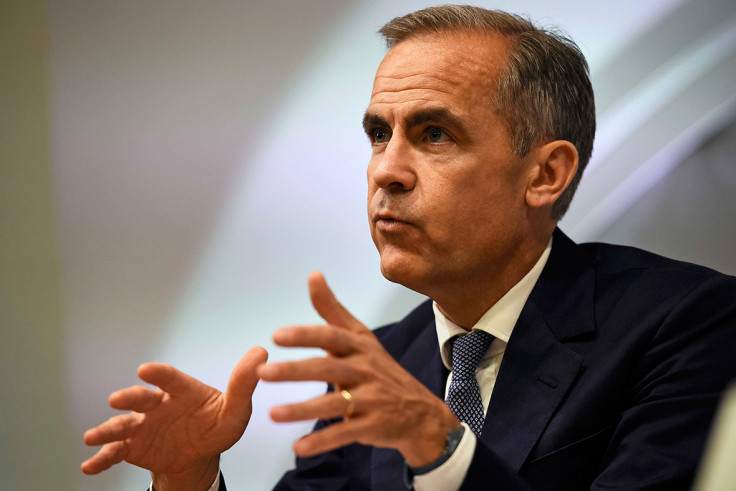Bank of England expects inflation to peak at 3.2% amid 'considerable' Brexit risks
Bank of England lifts interest rates from 0.25% to 0.5%, in what marks the first hike in a decade.

Inflation in Britain will peak at 3.2% this year and the UK economy will slow down next year amid "considerable risks" related to Britain's exit from the European Union, the Bank of England said on Thursday (2 November) after hiking interest rates for the first time in a decade.
BoE Governor Mark Carney said the Bank was "not concerned about where the inflation was now, but about where it was going", adding the rate of inflation was unlikely to return within the Bank's targets without support from monetary policy.
The Bank, which raised interest rates to 0.50% from a historic low of 0.25% following a 7-2 vote in favour, expects inflation as measured by the consumer price index (CPI) to peak at 3.2% in October this year.
Inflation is then forecast to fall to 2.4% and 2.2% in 2018 and 2019 respectively, marginally above the Bank's 2% target.
"The Bank is on a tightrope, it wants to dampen down inflation and consumer borrowing without knocking out the UK consumer," said Ian Stewart, chief economist at Deloitte
"Incomes are shrinking and households need cheap finance. Today's rise is a warning shot, not the start of quick fire campaign of rate hikes. With the Bank labouring the risks to growth we are heading into the most cautious, tentative rate hike cycle in modern history."
Data released last month by the ONS, showed inflation reached its highest level in five years in October, peaking at 3%, matching the Bank's own forecast from August.
However, the latest snapshot of Britain's labour market showed wages increased slightly more than expected but remained firmly behind inflation in the quarter through to August.
The Bank added unemployment is likely to fall further from the current four-decade low of 4.3% to around 4.2% by the end 2017.
We have raised interest rates to 0.50% - find out more at https://t.co/t3kXo2DpBQ #InflationReport pic.twitter.com/xOPSF2wMdI
— Bank of England (@bankofengland) November 2, 2017
GDP to slow down
Publishing forecasts at the conclusion of its latest Monetary Policy Committee (MPC) meeting on Thursday (2 November), the BoE also said it expected Britain's economy to grow 1.6% in 2018, down from the 1.7% expansion forecast for this year.
The GDP is then expected to grow by 1.7% in both 2019 and 2020. It expects inflation, as measured by the consumer prices index (CPI) to peak at 3.2% in October, before easing back gradually towards the Bank's 2% target
"Consumption growth remains sluggish in the near term before rising, in line with household incomes," the bank's monetary policy summary said.
"Net trade is bolstered by the strong global expansion and the past depreciation of sterling.
"Business investment is being affected by uncertainties around Brexit, but it continues to grow at a moderate pace, supported by strong global demand, high rates of profitability, the low cost of capital and limited spare capacity."
Last week the Office for National Statistics (ONS) reported that Britain's gross domestic product (GDP) grew more than expected in the third quarter, climbing 0.4% from the 0.3% recorded in the previous three months.
On a year-on-year basis, the UK economy expanded 1.5% in the third quarter.
The Bank's latest forecast comes a day after a report released by the National Institute of Economic and Social Research (NIESR) stated the decision to exit the European Union has cost the average British household more than £600 per year in disposable income.
The think tank estimated that if the pound had not weakened and the economy continued to improve at its previous rate, household disposable income would have been more than 2% higher than at present.
It also forecast the UK GDP to expand by 1.6% this year and 1.7% in 2018, a modest downward revision on the forecasts it made earlier this year.






